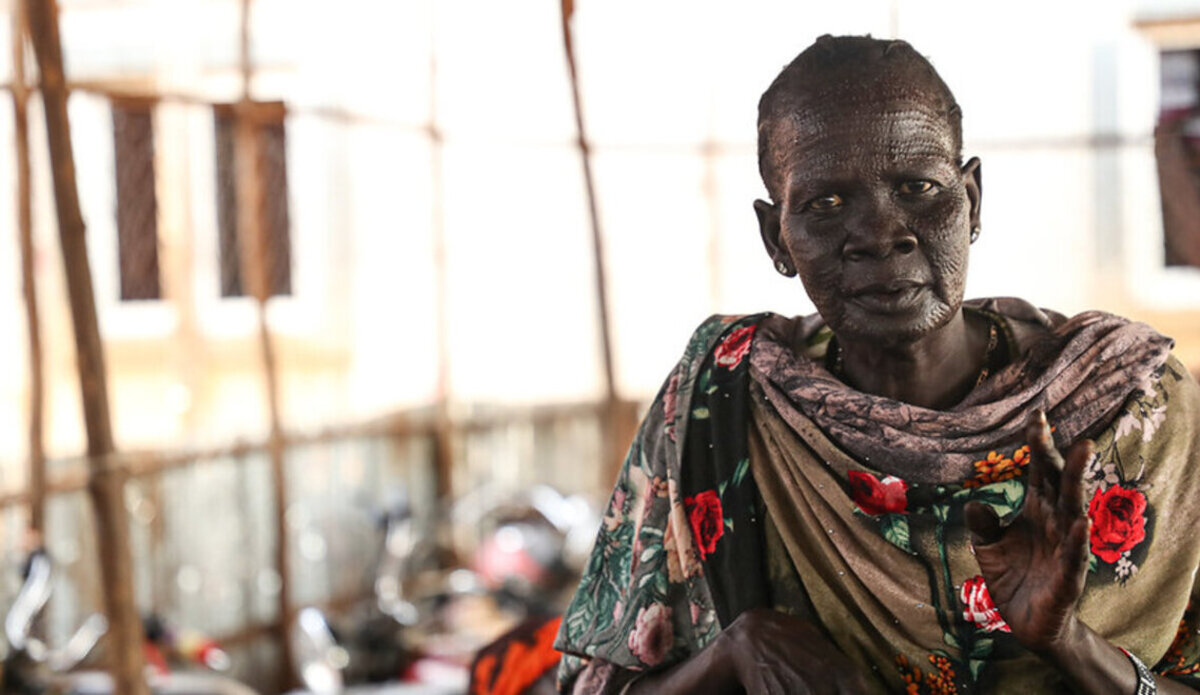“I have not seen my husband since 2016. I have eight children to take care of, and I don’t know what the future holds. Still, it is our shared difficulties that make us strong”.
Mariam Suna* is one of thousands of women who sought sanctuary from the United Nations peacekeeping mission, UNMISS, when violent conflict broke out in Juba, the capital of South Sudan.
Today, the camp is no longer under United Nations protection. Since 2020, the South Sudan Relief and Rehabilitation Commission has been managing the camp and the Government has had primary responsibility for providing security for the 34,000 people who remain resident.
Mariam eloquently explained the challenges she still faces as well as the sense of community that has developed within the camp to representatives of the United Nations Mission in South Sudan, who are on a goodwill mission to hear their concerns and help advocate for support.
“I have been in charge of women in this camp in such a way that they come and share their challenges with me, and I forward these concerns to the organisations providing support in the camp,” she said. “But this was not by choice. I found myself here and thought I must do something to help.”
Speaking on behalf of the women she represents, Mariam said living conditions in the camp are poor and security is unreliable.
“Women are attacked by unknown people. People go missing, phones are stolen, and when it rains, we cannot stay in our shelters,” she said.
“We will not be quiet. When cases are reported, we put victims in touch with groups that can help them. Our strength comes from having to work together and speaking up to make our difficulties known.”
*Christina Jalu, who describes herself as a human rights volunteer, adds that a young woman who is already nursing a child is now pregnant again, following a reported case of sexual assault.
“The shame stops her from asking for help,” she said. “There are the times when my strength is tested, and I wonder if I am helping the women here. All I can do is provide counselling because many of the women need long-term support, but in terms of practical help, I’m at a loss.”
The women face immense challenges, including exposure to crime, lack of access to basic services, an inability to return to their original homes, and uncertainty about their future. However, these difficulties have also created a common bond and enabled the development of a strong support network for women across the camp.
“We are fighting against forced marriages, advocating for our rights, and dreaming of a day when our voices will shape the laws that govern us”, states Christina.
“My message to the leadership of South Sudan is that they should use our experiences to inform policy making, to monitor human rights violations, and work with us to build a future where no woman lives in fear.”
*Names of individuals have been changed to protect their identity.

